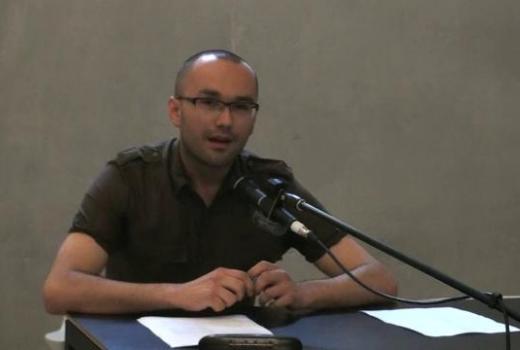The Practice of a Different Future

The Practice of a Different Future
24/02/2014
Protests in Bosnia and Herzegovina continue. Their message is clear—the time of the ethno-nationalist elites, who stole the country’s resources, common goods and capital in the blood of war and genocide, is over. It is not accidental that the 85 wealthiest oligarchs in Bosnia and Herzegovina are collectively worth $9 billion (figures from WealthX): this ‘wealth’ was looted from Bosnian citizens, whether in the shape of passing corrupt laws to pour money into their own pockets, or the siphoning off of money from the International Community to subdue the population into compliance with ethnic criminality for fear of a return to conflict.
The citizens’ struggle is resolute—to keep the space for direct democratic participation open, to insist their voices are heard and that their actions count. Plenums are public gatherings, open to any citizen, through which collective decisions and demands can be made and action taken, beyond guarantees of leadership. They are open, direct and transparent democracy in practice. Plenum, as the form of self-organisation and the method of work, in which citizens come together to articulate demands, underpinned by the action of protest marches, is now under attack. The attack comes from all quarters: the corrupt and complacent ethnic elites, who vilify the Plenums’ demands for openness, transparency and non-corruption, to the incredulous and hedging international actors, who have been stunned by the outstanding class solidarity expressed in the Plenums.
Local and international politicians, who in concert have maintained and allowed the parasitisation of the unwieldy and nepotistic ethnic bureaucratic structures, have exhausted the citizens of Bosnia and Herzegovina for almost 22 years. Out of rage and despair, the citizens, forced to rummage through dustbins to survive, forced to give bribes for basic services, have finally stood up to put an end to everyday terror of ethnic privitised slavery. The images of this slavery are thus: a worker, who has not been paid for almost 4 years, but is forced to go to work every day, with no health benefits, had to watch his wife die in agony because he could not afford healthcare; a student, forced to give huge bribes or sell her body to pass an exam, to graduate only to be unemployed and have no prospect for the future; a woman, whose son was severely beaten up by the police because he took to the street to demand the end to hunger, asked him to show his bruises to the plenum in Tuzla comprising over 700 people.
For over 22 years, citizens of Bosnia and Herzegovina who survived the war were told that they are a ‘charity case’, that they live in a ‘black hole’, that they face a shapeless future and the best they can hope for is to ‘get by’, ‘put up with it’ and be grateful if their children are offered a chance to work in American military bases in Iraq and Afghanistan, servicing these wars. For over 22 years, ethno-capitalist elites have raped and killed, mentally and physically abused women, men and children alike in the carnage that was heralded as ‘transition into democracy’. Since the end of the war in 1995, instead of mourning the horrific losses, citizens of Bosnia and Herzegovina have been forced, by local and international actors alike, to accept that they can only speak and act if they embrace the status of victims, off the backs and bodies of whom the ethnic elites can steal their riches.
The protests created, for the first time, a chance for Bosnia and Herzegovina to move from melancholia to mourning: that is, to face the losses and start counting the gains from the war. Ours is life that has survived war and genocide; has survived the feeling of deep mistrust whilst expecting some salvation. Ours is life that has been brutalized by the corrupt privatization of public companies, life that only dreams of fleeing this country, life that knows that its only certainty is that it can die in solitude and hunger. This is the life we have to recuperate – to create anew more humane and social ties that offer the youth of this country a fruitful, and not a featureless future. And it is this life that in agony and pain gives up on mistrust and works hard to produce and practice a different future now. How do I know this? I am part of this life and every day, I remind myself to get up and go to the streets to protest, to keep the body-politic, in public space, moving and practicing that future—because this is our only chance of staying alive.




